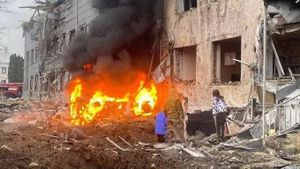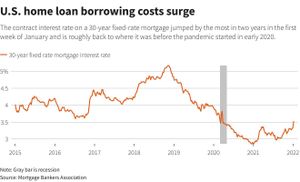SEOUL, South Korea - Former President Yoon Suk Yeol has been indicted for allegedly staging a coup d'état on December 3, 2024, plunging South Korea back to political chaos. His trial is scheduled to take place within the next six months as he faces serious allegations of treason and corruption, igniting mass protests across the nation.
Since December 14, when the National Assembly voted to suspend him from office – 204 members voting in favor and 85 against the motion – Yoon has faced significant political hurdles. Previously, his party, the People’s Power Party (PPP), failed to impeach him during another attempt on December 7, when most of its members boycotted the vote. Subsequently, Prime Minister Han Duck-soo took over as interim president, though he too became embroiled in controversy, as he blocked corruption investigations tied to Yoon and refused to appoint judges necessary for the impeachment process.
On January 10, the National Assembly voted to investigate Yoon for treason and, remarkably, the former president vowed to “fight to the end.” Following his suspension, Yoon barricaded himself within the presidential residence, under the protection of his private security, and declined requests for questioning by the Corruption Investigation Office (CIO).
Yoon's defiance drew thousands of demonstrators to the streets, some rallying for his support and others demanding his removal. On December 31, authorities issued an arrest warrant, which led to the first attempted arrest on January 3, 2025. That effort failed as over 200 of Yoon’s security guards, supported by South Korean military personnel, prevented law enforcement from entering the premises.
The legal drama escalated, culminating in another attempt to arrest him on January 15. This time, police mobilized over 1,000 officers, and after facing immense pressure, Yoon eventually surrendered. “Keep fighting!” he urged his supporters, signaling his intent to maintain his controversial position.
Yoon's situation has drawn parallels to political events outside South Korea. Like former U.S. President Donald Trump, Yoon has galvanized support from conservative and anti-feminist factions, especially among young men. His ardent followers have fashioned similar protest tactics, even adopting the anti-election fraud slogan, “Stop the steal,” echoing Trump’s rhetoric after the 2020 American elections.
Reporting on Yoon’s case also uncovered connections to other political scandals, particularly through his Defense Minister, Kim Yong-hyun, who is implicated for attending meetings about imposing martial law. This dramatic situation suggests deep-rooted instability within South Korea's governance and the military's role therein.
Importantly, amid the turmoil, the country's largest independent trade union confederation, the Korean Confederation of Trade Unions (KCTU), has played an active role. They called for mass strikes just as Yoon assumed the presidency, using his decision to declare martial law as evidence of his desperate measures.
Recent mobilizations for Yoon's resignation have attracted tens of thousands, though strikes have mostly been limited to short, rolling protests, particularly affecting the automotive industry. Yet, if the movement fails to escalate, analysts worry it may lose momentum, just as the larger anti-Yoon sentiment seeks to evolve beyond mere protests against one man, targeting the systemic issues perpetuated by Yoonism.
It seems the undercurrents of class conflict are at the heart of this narrative. While Yoon clearly views the organized working class as a significant threat, the reality is these protests represent disenfranchised voices raising concerns against the political status quo, advocating for labor rights and social justice across the country.
The coming months are poised to be decisive, with Yoon's impending trial set to draw national attention and push the boundaries of South Korean democracy. The intersection of legal consequences, social mobilization, and economic demands positions this moment as pivotal for the nation, one where the very fabric of leadership and governance can be re-evaluated.



